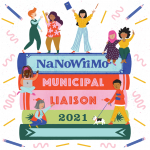A few follow up thoughts to my article about Seton Hill’s iPad:
One of the things that I think works against Seton Hill in their ads, especially those that I see all the time on the buses, are that they look remarkably like the ads for CCAC. If I didn’t pay as much attention to not only the ads on buses, but also ads in general, I think that I would easily get the two campaigns confused with each other.
I didn’t discuss the eBooks that will be available through iTunes now. From what I have heard, the interface is very well put together (although it is inside iTunes, which is a memory hog, hence my switch away from it). What still bugs me is a criticism of Apple in general, and that is their proprietary file formats and generally closed-off nature of their devices and applications.
I’m very much a fan of open source technology and the power of crowdsourcing, so when an eBook is only available on one device, I get worried. Granted, that is a part of the new digital age I think, but it is not good for consumers, who find themselves in a position where their library (be it books, music, video, games or anything else) is trapped on one devices, or one set of devises. That of course, comes back to bite the company in the ass: consumers are more reluctant to move on to the next generation/new model if they can’t bring their libraries with them.
At the moment though, that has not been a problem. But the elephant in the room currently are the game consoles. New generations of consoles come out every five or six years (on average, the 360 came out sooner, and Sony had said they expect the PS3 to be theirs for 10 years), and then a large chunk of hardcore consumers upgrade. At least with the Wii, while it can be tied to your account at Nintendo, it does not have to be, instead, downloaded games are tied to the physical console.
A small bit of code would fix that, and hopefully, responsible companies are looking into that, and of course, I do realize that this has become more of a tangent than looking at Seton Hill’s iPad marketing, but interesting thoughts nonetheless (at least I think so).
So back to Apple’s proprietary file formats. Presumably the iPad that students will be getting (and from what I have found out from a recent SHU alumni, students will also be getting desktop Macs as well) will be for use in the classroom. Imagine (and I hope that Carnegie Mellon is working on things like this) a professor walks into the room, with his or her tablet. He has that day’s handouts digitally and with a flick of his finger, sends the handouts from his tablet to every other one in the room (maybe this would have to be done from some sort of educational kiosk at the lectern, but you get the idea). He can instantly pass out slides from that day’s discussion, including notes taken on the smart board in the room. Exams could be sent out, done by students and then flicked back to the professor for grading. Blue books would be a thing of the past, if each student has a word processor in their fingertips.
Granted, things like safeguards against cheating would have to be worked out, and all that kind of stuff, but even in just the more mundane classes, this not only would be a huge savings in term of paper and printing, but students would be able to keep notes filed and organized on one device that could then sync with their desktops/laptops in their rooms. And in the more creative and scientific fields, tablets could be a great way for design students to take projects with them to work on where they find inspiration, to view their projects on different operating systems, and even provide new type of gallery opening, one in which projects are scattered and maybe even travelling to different screens, but each artist has the power to have a gallery with them at all times. Those in the sciences could store data, in numbers, video, images and their own thoughts, recording as they walk through their experiments, giving them unfeathered access to their own work as it is created and examined.
Anyway, it’s all projection. And a ways off. I hope that textbooks are able to be shared between students and their iPads, to allow for joint note taking (some textbooks are more like workbooks after all), and that was how I saved a bunch of money in college, sharing books on subjects I knew I wasn’t going to keep after they were done (sorry Fr. Simon!).
Okay, so I had more thoughts than I imagined I was going to, and I did get off on some tangents, but who knows, it’s a discussion, right? We’ll see what develops. For now though, I’m going to leave the Seton Hill iPad alone, I think I’ll be moving on to a couple other things that have caught my eye recently.
Filed under: Online, Outdoor, Second Thoughts Tagged: Higher Ed, iPad, Seton Hill
![]()






